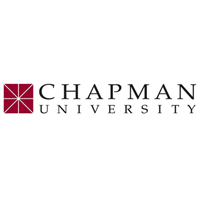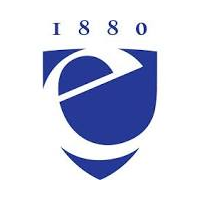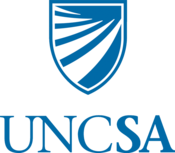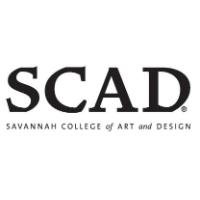What do they do?
Audition and interview performers to select most appropriate talent for parts in stage, television, radio, or motion picture productions.
Also known as:
Artistic Director, Casting Agent, Casting Coordinator, Casting Director, Extras Casting Director, Model Booker, Talent Agent, Talent Producer, Talent Scout
-
2.5%
Change
Ranks #48 in job growth rate180Job Openings
Ranks #26 in net job growth
-
Emerson College
Boston, MA
-
University of North Carolina School of the Arts
Winston Salem, NC
-
American Musical and Dramatic Academy
New York, NY
-
Ithaca College
Ithaca, NY
-
Chapman University
Orange, CA
Looking for colleges that offer a specific major? Use the College Match Tool to find your best-matched schools and discover your estimated Net Price!
- Doctorate or Professional Degree (2%)
- Master's degree (16%)
- Bachelor's degree (58%)
- Associate's degree (5%)
- Some college, no degree (12%)
- High school diploma equivalent (6%)
- Less than high school diploma (1%)
Most Popular Majors that prepare Talent Directors
-
#1
-
Degrees Granted
10,612
-
Female Students
6,937
-
Male Students
3,675
-
Median Starting Salary
$37,200
-
-
#2
-
Degrees Granted
7,532
-
Female Students
3,241
-
Male Students
4,291
-
Median Starting Salary
$39,600
-
-
#3
-
Degrees Granted
6,328
-
Female Students
2,797
-
Male Students
3,531
-
Median Starting Salary
$38,000
-
-
#4
-
Degrees Granted
1,184
-
Female Students
797
-
Male Students
387
-
Median Starting Salary
$37,200
-
-
#5
-
Degrees Granted
439
-
Female Students
277
-
Male Students
162
-
Median Starting Salary
$37,200
-
People in this career often have these skills:
- Active Listening - Giving full attention to what other people are saying, taking time to understand the points being made, asking questions as appropriate, and not interrupting at inappropriate times.
- Speaking - Talking to others to convey information effectively.
- Reading Comprehension - Understanding written sentences and paragraphs in work-related documents.
- Critical Thinking - Using logic and reasoning to identify the strengths and weaknesses of alternative solutions, conclusions, or approaches to problems.
- Social Perceptiveness - Being aware of others' reactions and understanding why they react as they do.
- Judgment and Decision Making - Considering the relative costs and benefits of potential actions to choose the most appropriate one.
- Monitoring - Monitoring/Assessing performance of yourself, other individuals, or organizations to make improvements or take corrective action.
- Negotiation - Bringing others together and trying to reconcile differences.
People in this career often know a lot about:
- English Language - Knowledge of the structure and content of the English language including the meaning and spelling of words, rules of composition, and grammar.
- Customer and Personal Service - Knowledge of principles and processes for providing customer and personal services. This includes customer needs assessment, meeting quality standards for services, and evaluation of customer satisfaction.
- Communications and Media - Knowledge of media production, communication, and dissemination techniques and methods. This includes alternative ways to inform and entertain via written, oral, and visual media.
- Personnel and Human Resources - Knowledge of principles and procedures for personnel recruitment, selection, training, compensation and benefits, labor relations and negotiation, and personnel information systems.
- Administration and Management - Knowledge of business and management principles involved in strategic planning, resource allocation, human resources modeling, leadership technique, production methods, and coordination of people and resources.
- Administrative - Knowledge of administrative and office procedures and systems such as word processing, managing files and records, stenography and transcription, designing forms, and workplace terminology.
- Fine Arts - Knowledge of the theory and techniques required to compose, produce, and perform works of music, dance, visual arts, drama, and sculpture.
People in this career often have talent in:
- Oral Expression - The ability to communicate information and ideas in speaking so others will understand.
- Oral Comprehension - The ability to listen to and understand information and ideas presented through spoken words and sentences.
- Written Comprehension - The ability to read and understand information and ideas presented in writing.
- Inductive Reasoning - The ability to combine pieces of information to form general rules or conclusions (includes finding a relationship among seemingly unrelated events).
- Speech Clarity - The ability to speak clearly so others can understand you.
- Written Expression - The ability to communicate information and ideas in writing so others will understand.
- Originality - The ability to come up with unusual or clever ideas about a given topic or situation, or to develop creative ways to solve a problem.
- Deductive Reasoning - The ability to apply general rules to specific problems to produce answers that make sense.
- Problem Sensitivity - The ability to tell when something is wrong or is likely to go wrong. It does not involve solving the problem, only recognizing that there is a problem.
- Near Vision - The ability to see details at close range (within a few feet of the observer).
- Speech Recognition - The ability to identify and understand the speech of another person.
People in this career often do these activities:
- Audition or interview potential performers or staff members.
- Select staff, team members, or performers.
- Coordinate logistics for productions or events.
- Negotiate for services.
- Maintain records, documents, or other files.
- Study scripts to determine project requirements.
- Collaborate with others to determine technical details of productions.
- Direct productions or performances.
- Coordinate musical rehearsals or performances.
- Monitor current trends.
- Teach classes in area of specialization.
- Teach humanities courses at the college level.
This page includes data from:

 Occupation statistics: USDOL U.S. Bureau of Labor Statistics Occupational Employment Statistics
Occupation statistics: USDOL U.S. Bureau of Labor Statistics Occupational Employment Statistics
 Videos: CareerOneStop, USDOL/ETA and the Minnesota Department of Employment & Economic Development
Videos: CareerOneStop, USDOL/ETA and the Minnesota Department of Employment & Economic Development









